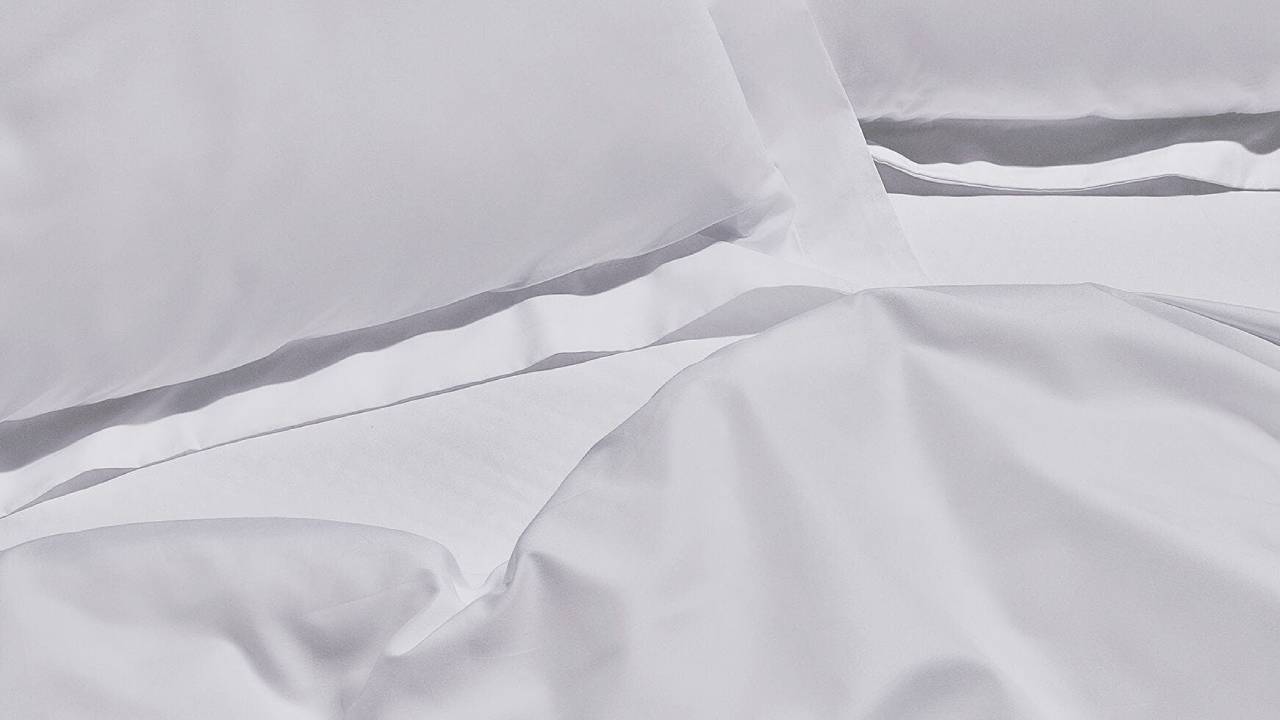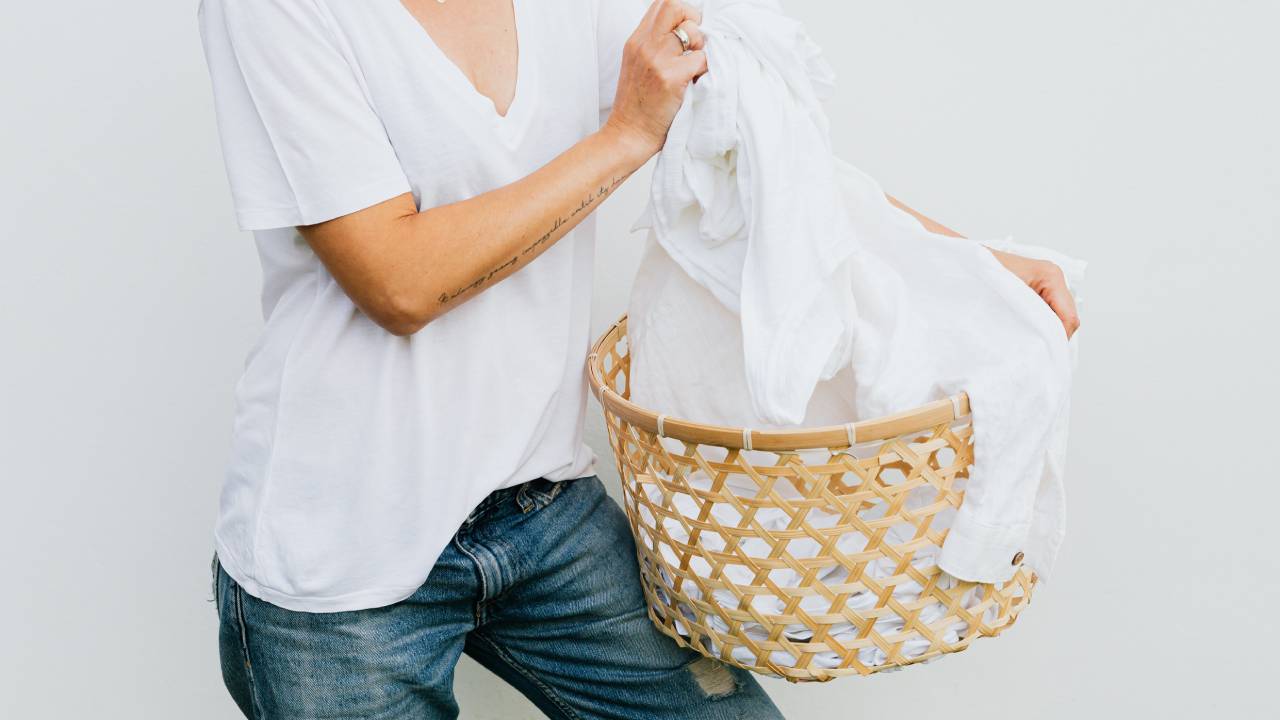Hate changing your sheets? Here’s what happens when you don’t wash your bedding
What not washing your bed sheets does to your skin and body


Let’s be honest, changing your bed sheets isn’t the most exciting task. Even if you have someone to help you, stripping the bed, washing your sheets and putting new linens back on the bed is annoying, fiddly and time consuming.
These are just some of the reasons why people avoid changing their bed sheets, but if you leave them for too long, this can affect your skin, body, hygiene and health. Even if you have the best mattress and the best bed sheets, they still get dirty so washing them regularly is vital to your general well being, and keeps your bedroom fresh and clean.
From bed bugs to breakouts, here’s what happens when you don’t change your bed sheets.
How often should you wash your sheets?

According to a survey in 2020, a third of Brits said they only washed their bed sheets once a year… which is very disturbing and makes me feel a bit sick. The general rule is you should wash your sheets once a week or once every two weeks. If you’re not particularly sweaty or you have no allergies, you can probably get away with washing them monthly but that’s really pushing it. For general guidance on washing and drying your bedding, check out T3’s guide on how often you should wash your sheets.
Of course, there are circumstances to how often you need to wash your bedding. For example, if you share a bed with someone, you’ll need to evaluate your sleep habits, like if one or both of you are sweaty sleepers. This helps determine how often your sheets should be changed. If you tend to sleep naked, you might have to wash your sheets more regularly as there isn’t a layer of clothes between you and the sheets, meaning there’s more transfer to both your body and your bedding. If you let your pets sleep on your bed, you’ll also want to change your sheets more frequently as pets can bring in outside dirt, shed hair or have skin conditions that can land on your sheets.
Now you know how often to change your sheets, here’s what happens when you leave them for too long.
What happens when you don’t wash your sheets

Even if you have the best hygiene in the world, not changing your sheets isn’t great for you or the general upkeep of your home. If you start to notice any of these things happening to you, it could be time to put a wash on.
Get all the latest news, reviews, deals and buying guides on gorgeous tech, home and active products from the T3 experts
Triggers allergies
When we sleep, we shed our skin. Humans lose up to 500 million skin cells a day, so it’s unsurprising that you might find dry skin in your bed sheets. But if you don’t wash them, these dead skin cells pile up and dust mites are attracted to them. Dust mites won’t bite you like bed bugs, but instead will leave droppings in your bed which can trigger allergies, like asthma and eczema. They can also make you sneeze and feel itchy around the mouth, eyes and throat. Other than washing your bedding once a week or every other week, you can also dust your room, get a dehumidifier and hoover to get rid of dust mites. If you’re a frequent sufferer of allergies, we’ve also put together a guide on how to choose the best duvet for allergies which can eliminate some of these issues – remember, you’ll still have to wash it though.
Skin breakouts
As the material from the best pillows and best duvet come into contact with your skin, this can cause spot breakouts or worsen your acne, especially if you haven’t changed your covers in a while. This is because the dirt, sweat, oil, dribble, dead skin and other bacteria that we shed when we sleep can clog your pores. Pillowcases are the worst culprit for this so you should be washing them alongside your bedding once a week. If you frequently break out or have a bad case of eczema or acne, you might want to change your pillowcases every 2-3 days. For more cleaning tips, read how to clean your pillow.
Longer illnesses
If you or your bed partner is ill or has been sick recently, wash your bed sheets straight away. Firstly, your sheets will pick up on sickly smells which will make your room and bed smell terrible. But most importantly, your sheets can hold the illness or bacteria so you’ll want to wash them immediately to kill any germs left on them. Most viruses like the flu or the common cold can live on soft surfaces for several hours so if you’re ill and you’ve slept in your sheets, you can trap the germs in your bed for the day if you make it without changing your bedding. This can also cause you to feel sicker for longer and you run the risk of getting ill again.
General hygiene
Finally, your hygiene will take a plummet if you’re not changing your bed sheets. Even if you’re a super clean person and you shower every night before getting into bed, dirty sheets still touch your skin and hair which can make you smell. Fungus, mould, sweat and other bacteria all build up in your sheets and rub off on you, which is not only deeply unhygienic but can also make you sick. If you’re smelling or feeling this way, you can also attract bed bugs, which contrary to popular belief, are attracted to you, rather than your bedding. But, once you’ve got a bed bug, they can stay in your sheets for ages, feeding on you and making you itchy and rashy.
So, to avoid all these things… wash your sheets, people!

Beth is Home Editor for T3, looking after style, living and wellness. From the comfiest mattresses to strange things you can cook in an air fryer, Beth covers sleep, smart home, coffee machines, watches, grooming tools, fragrances, gardening and more.
In her spare time, Beth enjoys running, reading, baking and attempting craft projects that will probably end in disaster!